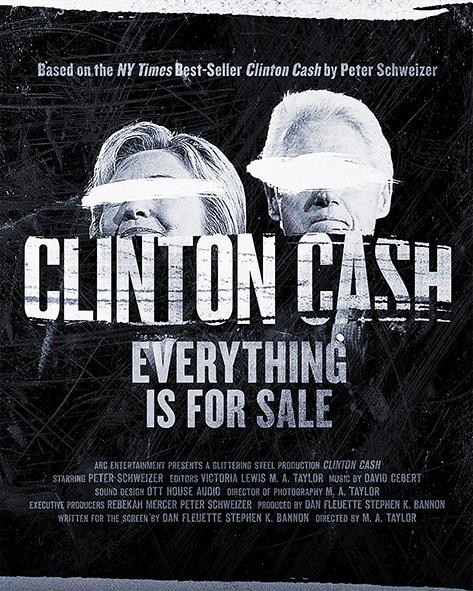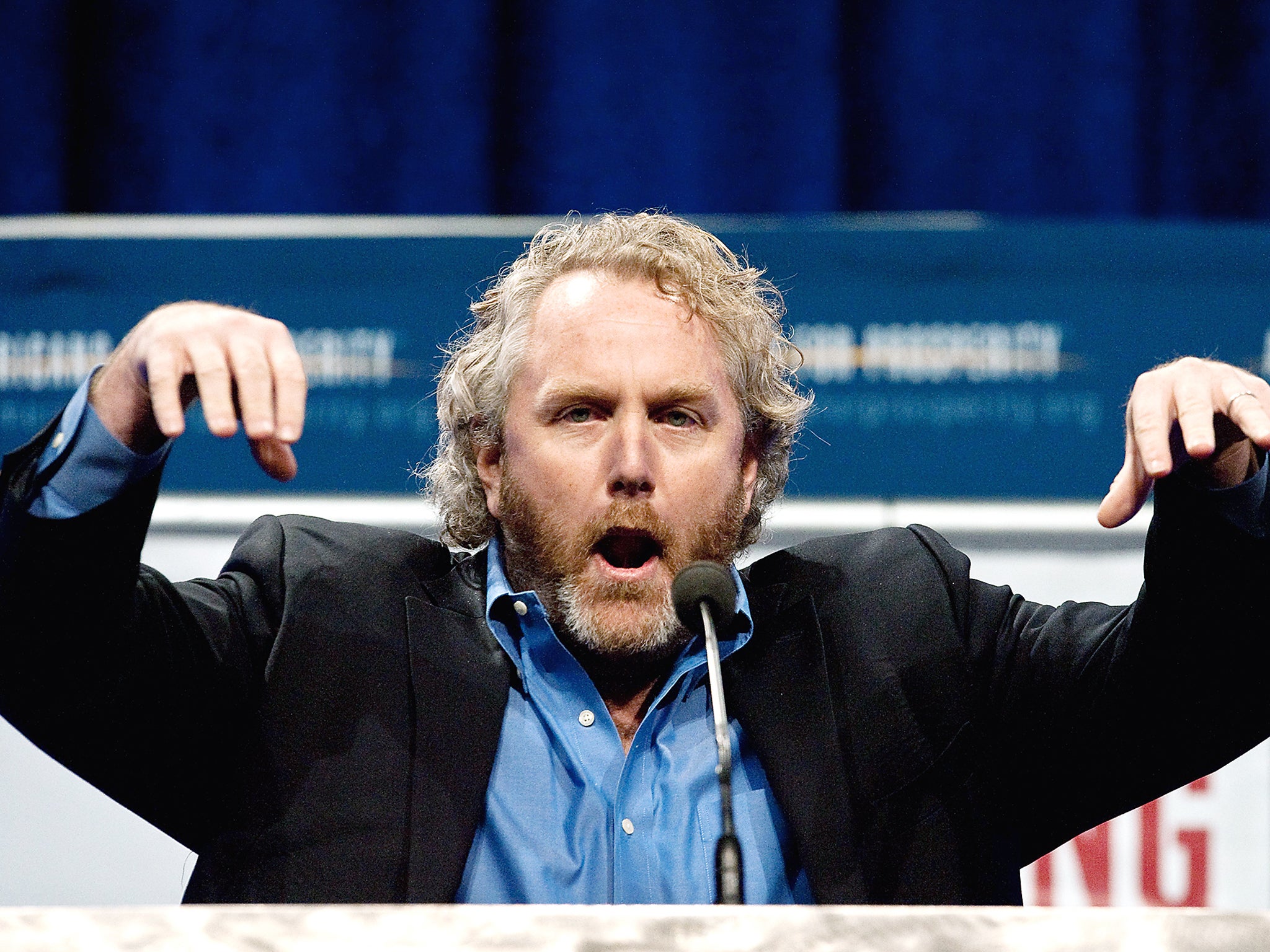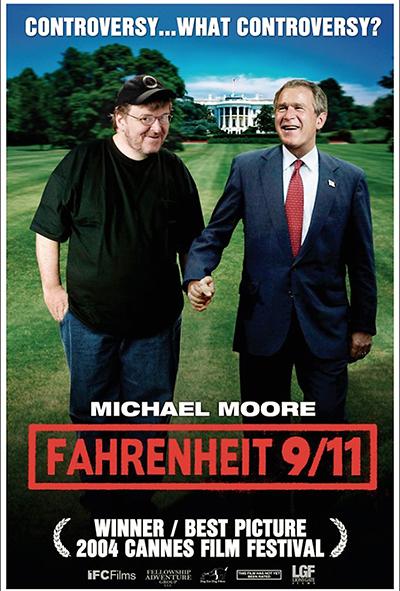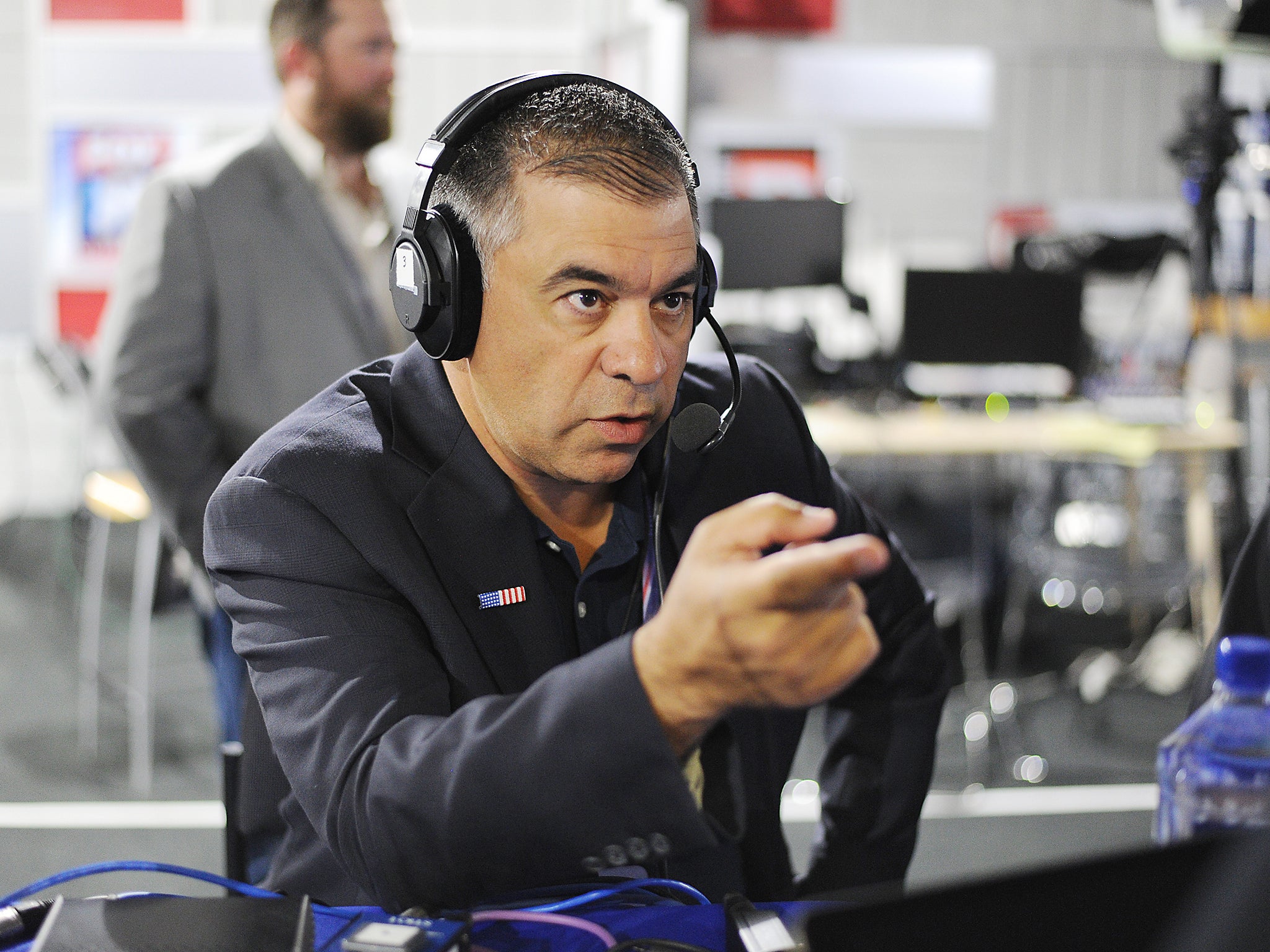How Bannon’s multimedia machine drove a movement and paid him millions
President Trump’s chief strategist used money from a network of companies and nonprofit groups to fuel his populist cause

Stephen Bannon could barely finish his sentences as he implored the listeners of his Breitbart News radio show to see the new movie Clinton Cash. It was 20 July, the homestretch of the 2016 presidential campaign, and Bannon was describing Bill and Hillary Clinton as "scumbags" and "bandits" who had made millions of dollars through political connections.
"Hillary and Bill Clinton are the two single biggest grifters ever to run for president of the United States," Bannon told his guest, Peter Schweizer, the author of the book behind the movie.
Bannon, now President Donald Trump's chief strategist, framed his radio show that day as an urgent effort to reveal important information for voters – but there was more to it.

The show and Clinton Cash were components of an intricate multimedia machine comprising nonprofit organisations and private companies that Bannon had leveraged to advance his conservative, populist agenda and bring in millions of dollars. That effort ultimately helped propel Trump into the White House and Bannon into national prominence.
A close look behind Bannon's radio broadcast that day offers insights about how that machine worked.
As it happened, the research behind Clinton Cash had been funded by the Government Accountability Institute (GAI), a tax-exempt public charity that Bannon had created a few years earlier and that had paid him hundreds of thousands of dollars as executive chairman, documents show. Clinton Cash had been produced by Glittering Steel and Bannon Film Industries, two companies owned by Bannon, who was one of the screenwriters.
Bannon also was an owner of ARC Entertainment, the firm listed as distributor of the film. And he was receiving a six-figure salary as executive chairman of Breitbart News, which heavily promoted the film through Bannon's radio programme and its controversial website.
There's no telling how many in his audience understood the connections. Many of the links are scattered among corporate, court and tax records, as well as in a financial disclosure report for 2016 that the White House released last week.
During the July broadcast, Bannon only hinted at the connections, saying: "We're now going to put this film up for the whole world to see starting this weekend."
A Washington Post examination found that Bannon was able to produce more than a dozen conservative documentaries over the past decade by drawing on a network of two-dozen nonprofit organisations and private companies. Bannon helped arrange donations from wealthy Republicans to the nonprofits that paid him for films and other work, documents show. At the same time, Bannon and his firms took in at least $2m (£1.6m) from the nonprofits and an additional $5 million from the private companies, records show.
Bannon, who had already made millions on Wall Street, often was paid in multiple ways for each project – a common practice in Hollywood, where he had worked as an entertainment financier. Because he was paid through the nonprofit and private companies, which have limited obligations to disclose details about their activities, the total pay to Bannon remains unknown. In a personal financial disclosure released by the White House last week, Bannon reported his net worth as between $11.8m and $53.8m.

Bannon, the White House and Schweizer did not respond to repeated requests for comment.
Tax specialists say that some of Bannon's activities raise questions about compliance with Internal Revenue Service restrictions against using tax-exempt charities to attack a political candidate or for excessive personal financial benefit.
"The appearance is you have a tightknit group of friends and political allies working together to provide benefits, to Mr. Bannon in particular," says David Nelson, a specialist on nonprofit organisations and former tax partner at the Ernst & Young accounting firm, who reviewed records detailing the complex ties between Bannon and the nonprofit groups.
Misuse of the tax-exempt nonprofit system for financial and political benefit has become widespread, but such transgressions rarely result in meaningful penalties, according to experts. "It is being manipulated so badly," says Paul Streckfus, a former tax lawyer at the IRS and editor of the EO Tax Journal. "It's a joke."
David Bossie, who heads two nonprofit groups that collaborated with Bannon on some of his films, praises him. "We stand shoulder-to-shoulder with Steve Bannon and our products. We're very proud of all our films," says Bossie, president of the nonprofit Citizens United and its affiliate foundation. "The First Amendment is an amazing thing."
Bannon, 63, accumulated millions from the 1980s through the early 2000s as a financier on Wall Street and in Hollywood, where he immersed himself in the nuances of film production and distribution. He had a yen for making movies and could sequester himself for days and weeks to write scripts and film treatments, former colleagues say. Drawing on lessons from both New York and Hollywood, Bannon was able to command substantial consulting fees from companies while serving as a part-time adviser for both financing and creative work.

In 2004, he made a political-oriented documentary, In the Face of Evil: Reagan's War in Word and Deed based on a book by Schweizer about the 40th president. During the movie's promotion, Bannon met a rising star of conservative media named Andrew Breitbart.
But more important to Bannon's career as the auteur of agenda-driven documentaries was Bossie, who got his start as a political activist and investigator working in opposition to Bill Clinton and his Democratic allies. Bossie had served a controversial stint as the chief investigator for the House Committee on Government Reform and Oversight, under Republican Representative Dan Burton.
By the mid-2000s, Bossie was the head of Citizens United, a conservative tax-exempt group in Washington whose mission was to educate the public about the importance of "a strong national defence, constitutionally limited government, free market economics, belief in God and Judeo-Christian values, and the recognition of the family as the basic social unit of our society."
At the time, Bannon was working as chairman of the board for a media-distribution company in Los Angeles called Genius Products, which focused on independent films.
"Steve really liked the idea of helping the smaller guy, the smaller independent filmmakers" who might not get attention from larger distributors, recalls Trevor Drinkwater, chief executive of Genius.
Bossie and Bannon bonded over their shared interest in using film to spread a conservative message. Both men wanted to replicate what liberal activist Michael Moore had done two years earlier with his cinematic scorching of President George W Bush in Fahrenheit 9/11. "We wanted to deliver a message," Bossie says.
In 2006, Bossie envisioned a movie, to be called Border War: The Battle Over Illegal Immigration, that would take viewers into drug- and human-trafficking tunnels under the US border. Bannon agreed to serve as executive producer of the film, and agreed to use Genius, his fledgling company, to distribute it on DVD.
It was the start of a lucrative, increasingly influential relationship that in the coming decade would help him rise in the conservative ranks – and increase the wealth Bannon had amassed on Wall Street and in Hollywood. According to a divorce filing submitted by his third wife in 2008, Bannon had assets worth $41m.
Corporate documents show Genius, a public company, started out paying his consulting firm, Bannon Strategic Advisors, $250,000 a year. Drinkwater said Bannon offered business advice and had ties to investment bankers and hedge-fund managers. "He had incredible connections everywhere. I don't think there was one meeting he couldn't get," Drinkwater says.

Even as Genius struggled financially, Bannon continued earning his fees, about $1.5m over five years, court records show. In May 2008, in a filing with the Securities and Exchange Commission, Genius said: "We have a history of significant losses, and we may never achieve or sustain profitability." The company later went bankrupt.
In 2010, Bannon and Drinkwater started a film-distribution company based in Santa Monica, California, called ARC Entertainment. At the same time, Bannon jumped headlong into his side career as a political-documentary filmmaker. It was a fertile time for a conservative filmmaking. The midterm elections were approaching, the Tea Party was coalescing in opposition to Obama and radical conservatives saw themselves at war with what they perceived as a federal government bent on imposing godless socialism.
In January 2010, the Supreme Court voted five to four in favour of Citizens United in a two-year-old lawsuit that the charity filed over election rules prohibiting them from spending money to promote an anti-Clinton documentary during the 2008 primary season. That decision allowed new forms of unlimited political spending by organisations such as Citizens United – an opening that was immediately seized upon by megadonors on the right opposed to the Obama administration.
When Citizens United decided to move forward with additional films, Bossie turned to Bannon to write, direct and produce for Citizens United Productions, a for-profit company started by the nonprofit organisation and an anonymous investor. Bossie declined to reveal the investor's identity.
Tax filings show that Citizens United invested hundreds of thousands of dollars in the first movie, Generation Zero, Bossie was co-producer.
The film focused on the global financial crisis that began in 2008. It had the hallmarks of a Bannon production. Fast-cut editing. Ominous music. The use of images of tornadoes and nuclear explosions to symbolise the ravages of Wall Street's meltdown, along with footage of free-loving hippies to suggest that the blame lay with the political left.
"He's an incredible visionary filmmaker and well read and he gets immersed in his subject matter," Bossie says of Bannon. "He's brilliant, a brilliant writer and director."
Costs were kept down on the low-budget films by the use of stock footage and commentary from Republican luminaries. It is not clear from the public documents how much of the fees paid to Bannon or his companies went to production costs or overhead.
In 2010, Bannon made the next two films, Battle for America, a harsh critique of the Obama administration and big government, and Fire from the Heartland, which spotlighted the rise of conservative women. Citizens United Foundation Productions spent $1.7m that year on the production and distribution of what it called "educational documentary films", while Citizens United spent $1.9m on film production, according to financial filings.
That same year, Bannon's filmmaking career got a boost from another conservative tax-exempt charity. Young America's Foundation in northern Virginia, hired Bannon Film Industries to begin work on at least three films, paying nearly $578,000 between 2010 and 2012, according to tax filings. That included two documentaries for the Reagan Ranch in Santa Barbara, California, which the foundation manages, and The Conservatives, a 29-minute short film meant to inspire conservative student leaders on college campuses.
On its website, the foundation calls itself "the principal outreach organisation of the Conservative Movement." It was led by a conservative activist, Ronald Robinson, who also sat on the boards of Citizens United and the Citizens United Foundation.
Driven by a fount of ideas and restless energy, Bannon was becoming a tribune of the insurgent conservative vanguard. "I think he worked on a lot of things simultaneously," Drinkwater said. "That's his personality. He probably sleeps three hours a night and can do a lot of things at the same time well."
In addition to his fees for writing, directing and producing, Bannon was receiving $22,500 a month, or $270,000 annually, in consulting fees from ARC Entertainment, his film-distribution company, according to a home lease application Bannon signed in 2013.
Kirk Wickstrom, chief financial officer of ARC Entertainment from 2010 to 2013, said that Bannon was the company's sole board member and played an advisory role. "He wasn't tremendously hands-on," Wickstrom said. "We didn't use him that much; mostly when deals came along, he'd take a look at them."
In 2011, Bannon decided to make a film about Sarah Palin, a darling of the Tea Party and presumed presidential contender, to be known as The Undefeated.

According to one associate who spoke on the condition of anonymity because he did not want national exposure, Bannon had developed a set of principles for his filmmaking. They would be built around "male-, testosterone-, spiritual-driven content." And Bannon would "never put his own money into any project."
The producer of the Palin film was a Tallahassee, Florida-based company that Bannon had formed with a few investors in 2010. Bannon told some of his investors that he was treating The Undefeated as a moneymaking venture and expected solid returns, the associate said. Bannon's company, ARC Entertainment, would distribute it. Despite Bannon's optimism, the movie tanked after Palin backed away from a White House run.
In 2011, Bannon forged an alliance with the wealthy Mercer family in New York. Robert Mercer was a hedge-fund billionaire who was on his way to becoming one of the most generous conservative political donors in the country. Mercer and his daughter Rebekah Mercer operated the Mercer Family Foundation, a fast-growing source of funding for conservative causes, with assets of nearly $38m as of 2012. They began relying on Bannon for political advice.
Bannon drafted a business plan for the family that called on them to invest $10m in the fledgling Breitbart News operated by Bannon's friend Andrew Breitbart. Bannon joined the board of the news site. Documents show that money from the Mercer Family Foundation began flowing to some of the same charities that funded Bannon's films and other work.
In 2012, the Mercer foundation donated $2m to the nonprofit Citizens United Foundation, which then gave one of Bannon's consulting firms $300,000 as a "fund raising fee", according to IRS documents.
New York and other states require that individuals or firms that raise money for nonprofit organisations register with the state. Bannon's firm was not registered in New York at the time, according to state officials.
When asked about the fee, Bossie, president of both Citizens United and its foundation, describes the fundraising label as a clerical error. He says the payment was actually related to film consulting that Bannon provided. In a statement, Bossie said the fee "has no material bearing on the organisation's financial affairs and given the time that has transpired does not merit a correction" to the group's tax filing.
An audit report for the Citizens United Foundation that year appears to contradict Bossie. It lists fundraising expenses of $301,200, according to a copy of the audit.
After the Post asked about the discrepancy, officials in the New York Attorney General's Office last week issued letters to both Citizens United and Bannon's consulting firm seeking more information.
Bannon would receive another $150,000 in fees after the Mercer Family Foundation donated $1m to the Citizens United Foundation in 2013. In its annual filing to the IRS for that year, Citizens United described the $150,000 as a payment for both film consulting and fundraising, and the group's auditors listed $150,000 as the group's spending on fundraising.
Other money flowed to Bannon for new political documentaries. Working with Citizens United, he was the writer, director and producer of The Hope & The Change, an examination of Democrats disaffected with Obama, and Occupy Unmasked, a salvo aimed at the political left and Wall Street protesters.
That same year, Bannon collaborated with a conservative charity, Judicial Watch, on a film called District of Corruption, a critique of the Obama administration and the money flooding into Washington. Judicial Watch, which describes itself as an accountability-oversight group, paid Bannon's Victory Film Project $382,143, documents show.
In March 2012, Bannon formed his own nonprofit group, the GAI. In filings with the IRS seeking tax-exempt status he said it would operate as an "educational charity" to promote "economic freedom" and seek to expose corruption.
Such groups are known as 501(c)(3) charities, a title related to a section of the tax code they fall under.
The GAI was based in Tallahassee. Bannon served as chairman and executive director, earning an estimated $100,000 annually, documents show. His colleague, Schweizer, served as president and received an estimated $200,000. Robinson, named as a GAI director, was unpaid, the document shows.
Bannon, Schweizer and Robinson were linked through nonprofit organisations and filmmaking work. Bannon and Schweizer had made the film about President Reagan together in 2004; more recently, they were colleagues at Breitbart News. Schweizer sat on the board of Robinson's Young America's Foundation, which had paid Bannon $404,904 to produce films in 2010 and 2011, documents show, and would pay him almost $173,000 in 2012.
In the document seeking tax-exempt status for the GAI, Bannon signed a document under penalty of perjury repeatedly attesting that each of them "has no family or business relationships with any other persons involved with GAI".
A GAI spokeswoman told The Post that the relationships were later disclosed in the group's annual filing with the IRS - submitted in November 2013, nine months after the GAI's tax-exempt status was approved.
Charities are required to disclose business relationships among their directors on their initial applications for tax exemption so that the IRS can examine whether the organisation is being formed for a proper public purpose.

Robinson says that he had not seen the application. "I do not know the definition of 'business relationship', " he says. "That is an issue to take up with those who prepared it."
The GAI would only have a relative handful of donors in the coming years. Its first $2m infusion of cash came from another conservative charity.
The Mercer Family Foundation and Donor's Trust, a conservative nonprofit group tied to the wealthy Koch brothers, would donate more than $7m to the GAI over the following three years, documents show.
A spokeswoman for the GAI previously told the Post the organisation "is and always has been in total compliance with all 501(c)3 rules". She also said that the group has a "bipartisan track record of working with top investigative units in media on award-winning reports."
Early on 19 March 2012, the same day that the IRS accepted the GAI application, Bannon took on yet another leadership role: he was named the executive chairman of Breitbart News, filling the void left by the unexpected death of Andrew Breitbart earlier that month.
Wickstrom, the CFO of ARC Entertainment, says he was with Bannon on a business trip in New York when Bannon got the call that Breitbart had died. Bannon spent the day on the phone, he says. "He felt very much responsible for [Breitbart News]."
Bannon immediately began to expand Breitbart's reach while also working with Schweizer and others to put the GAI on the political and journalistic map.
In February 2013, Bannon said on a rental application that the Mercer-backed Breitbart News was paying him $62,500 per month, the equivalent of $750,000 a year. He also reported receiving $377,000 in pay between 2012 and 2015 from the GAI for working an average of 30 hours per week.
In 2014 and 2015, Bannon took on additional paid positions in two Mercer-backed companies that were positioning themselves to play a role in the 2016 presidential election.
Bannon became a vice-president of Cambridge Analytica, a data-science firm, in June 2014. With Rebekah Mercer, he also co-founded another film-production firm called Glittering Steel LLC and became its chairman, documents show.
Through it all, Bannon was managing Breitbart's 24/7 news operation and also hosted a radio programme. Bannon often highlighted the GAI's work and invited its employees as guests on his show. As chairman of the GAI, Bannon approved spending more than $200,000 on advertising on Breitbart News's website, according to disclosures that the charity submitted to the IRS.
Bannon also was maintaining ties to Bossie from Citizens United, and often invited Bossie onto his Breitbart News radio programme. In 2015, the GAI also gave $125,000 to Citizens United Foundation, calling the donation "general public assistance".
Citizens United and Bannon's Glittering Steel produced his 2016 Torchbearer, featuring Duck Dynasty star Phil Robertson, a film that Breitbart News said was a "clarion call for Christians and people of faith in America to engage their culture before it's too late".
The efforts of Bannon's network culminated with release of Clinton Cash, the book Schweizer wrote using researchers from the GAI. Bannon, Schweizer and others turned it into a movie with the help of Glittering Steel, which paid Bannon $167,500 in 2016, documents show.
Bannon promoted the movie in the run-up to the presidential election. He invited Schweizer onto his radio program on 29 April 2016, to discuss the Clintons.
"What is it about the permanent political class and how they're stealing from the audience that listens to this show and goes to Breitbart every day?" Bannon asked. Schweizer responded, "I mean, this film and Clinton Cash ... it's not a book about stuff that's happening in the abstract. It's about how a political class of leaders, personified by the Clintons ... are systematically selling out the interests of the country for personal profit."
On 20 July 2016, as the campaign was going into overdrive, Bannon again had Schweizer on Breitbart News's SiriusXM radio programme, broadcast from the Republican National Convention in Cleveland. "These people are corrupt," Bannon said. "They are corrupt from stem to stern."
Less than a month later, Bannon became the chief executive of Trump's campaign. Bossie, of Citizens United, joined as his deputy.
© Washington Post
Join our commenting forum
Join thought-provoking conversations, follow other Independent readers and see their replies
Comments
Bookmark popover
Removed from bookmarks